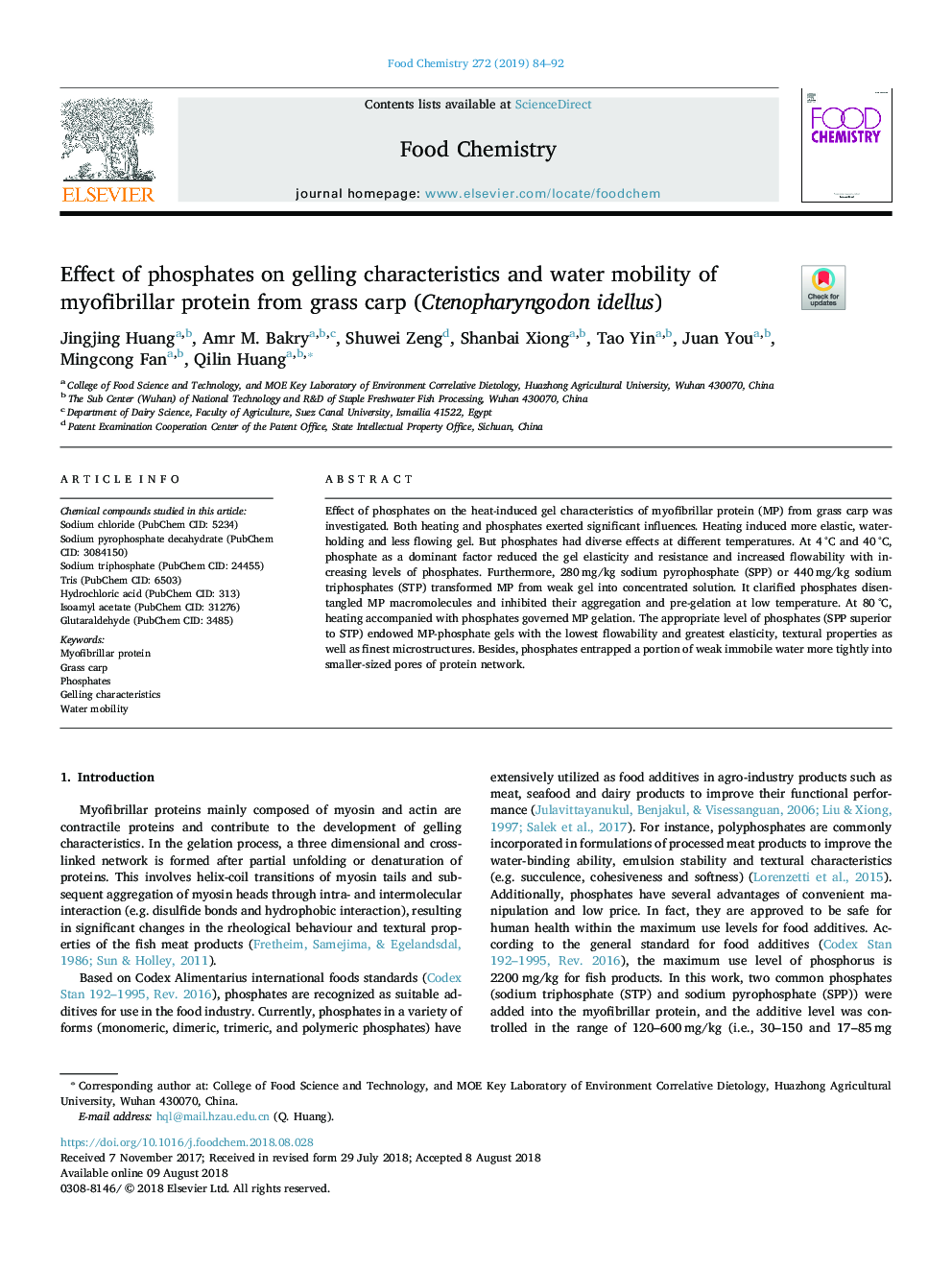| Article ID | Journal | Published Year | Pages | File Type |
|---|---|---|---|---|
| 7583721 | Food Chemistry | 2019 | 9 Pages |
Abstract
Effect of phosphates on the heat-induced gel characteristics of myofibrillar protein (MP) from grass carp was investigated. Both heating and phosphates exerted significant influences. Heating induced more elastic, water-holding and less flowing gel. But phosphates had diverse effects at different temperatures. At 4â¯Â°C and 40â¯Â°C, phosphate as a dominant factor reduced the gel elasticity and resistance and increased flowability with increasing levels of phosphates. Furthermore, 280â¯mg/kg sodium pyrophosphate (SPP) or 440â¯mg/kg sodium triphosphates (STP) transformed MP from weak gel into concentrated solution. It clarified phosphates disentangled MP macromolecules and inhibited their aggregation and pre-gelation at low temperature. At 80â¯Â°C, heating accompanied with phosphates governed MP gelation. The appropriate level of phosphates (SPP superior to STP) endowed MP-phosphate gels with the lowest flowability and greatest elasticity, textural properties as well as finest microstructures. Besides, phosphates entrapped a portion of weak immobile water more tightly into smaller-sized pores of protein network.
Keywords
Related Topics
Physical Sciences and Engineering
Chemistry
Analytical Chemistry
Authors
Jingjing Huang, Amr M. Bakry, Shuwei Zeng, Shanbai Xiong, Tao Yin, Juan You, Mingcong Fan, Qilin Huang,
